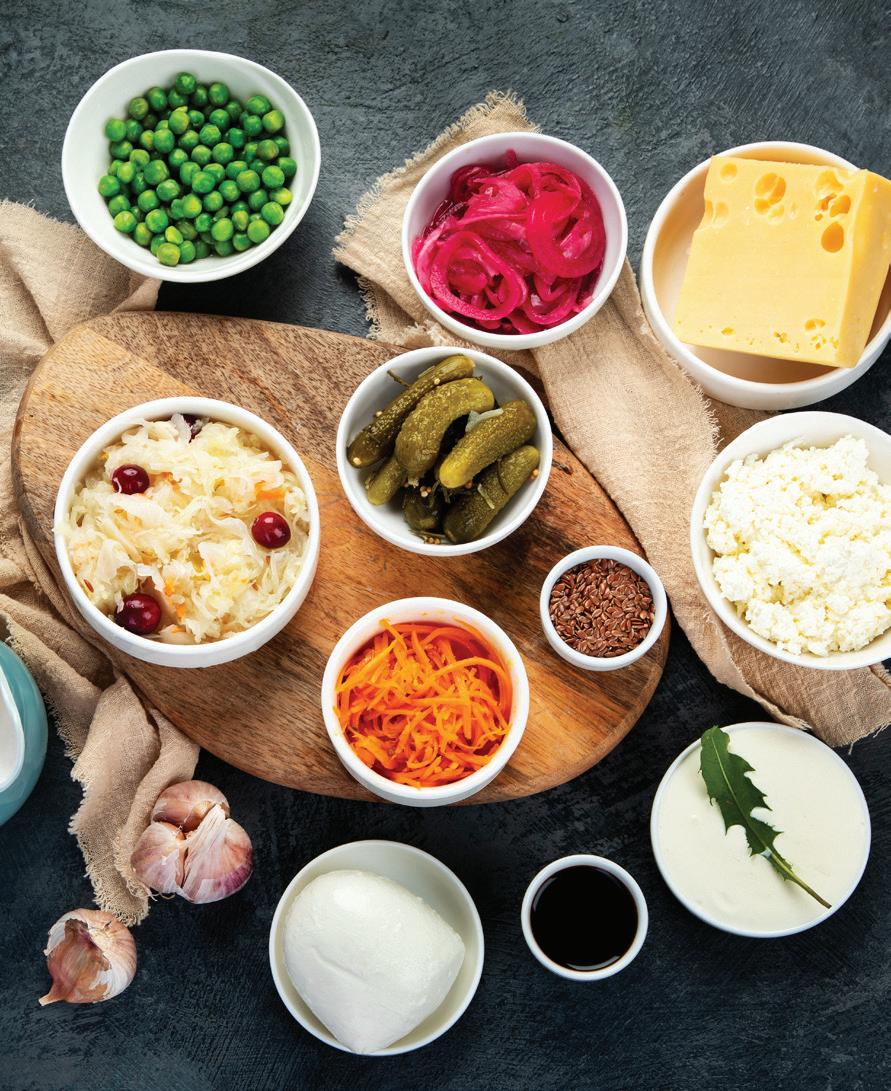
2 minute read
Prebiotics vs. Probiotics: Why you Need Them
PROBIOTICS VS. PREBIOTICS: Why you Need Them
They may sound familiar, but do you really know what probiotics and prebiotics are and what they do? It can be confusing because they sound similar, but they are quite different and equally important for your health. Probiotics and prebiotics help to stabilize and make your digestive system more efficient.
Let’s break down just what they are and how you can add them to your diet.
PROBIOTICS
A probiotic is a bacterium that helps digest your food. It breaks down what you eat and passes the nutrients to your body while giving the bacterium a place to live.
Realistically, without these bacterium we could not digest most foods.
A few studies have measured the evidence supporting the benefits of probiotics and found that they can be beneficial to digestive health, decrease the need for antibiotics, aid vaginal infections such as yeast infections brought on by antibiotics and even improve eczema.
A 2017 review concluded that probiotics may alleviate the symptoms of depression, although additional studies are needed. It’s likely this is because of the link between gut and brain health.
Foods rich in probiotics include yogurt, kefir, fermented foods such as sauerkraut and kimchi, kombucha, dark chocolate and apple cider vinegar. Cheeses that have been aged but not heated afterward also contain probiotics, such as Swiss, provolone, Gouda, cheddar and cottage cheese.
Some probioticrich foods can also contain prebiotics.
If you deal with occasional bloating, constipation or diarrhea, it may be worth trying out a probiotic. If it doesn’t help, see your doctor. PREBIOTICS
In basic terms, prebiotics serve as food for probiotics, so probiotics need access to prebiotics to work effectively.
Although many people will get enough prebiotics from their diet without taking supplements, it is important to eat a healthy diet to obtain this balance.
Prebiotics are a component of foods such as asparagus, onions, leeks, garlic, cocoa and konjac root. They act as food for bacteria and other favorable organisms in your stomach.
The benefits of prebiotics directly connect to the benefits of probiotics.
Prebiotics may support a healthy gut, offer better digestive health, fewer antibiotic-related problems and more. Although there is less research on prebiotics, research suggests they can improve calcium absorption, help the body quickly process carbs, help support probiotic growth in the gut and enhance digestion.
For most healthy people, there is no need to take prebiotic or probiotic supplements. Eating a diet rich in fruits, vegetables, whole grains and fermented foods means you will ingest sufficient prebiotics and probiotics without relying on supplements.
If you feel you may need supplements, consult an expert to find out just what you need. Usually, supplements pose little risk for those without a weakened immune systems or underlying illnesses, but if you are unsure, check with your physician first.










